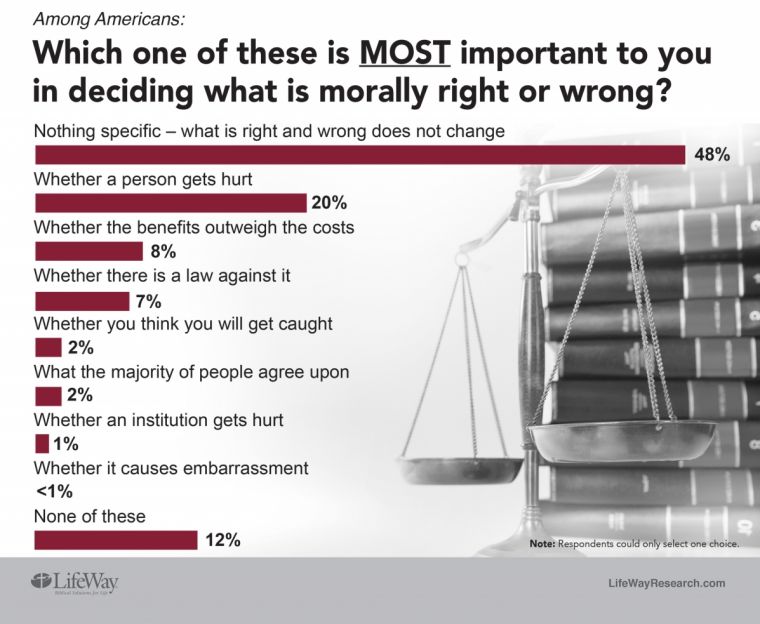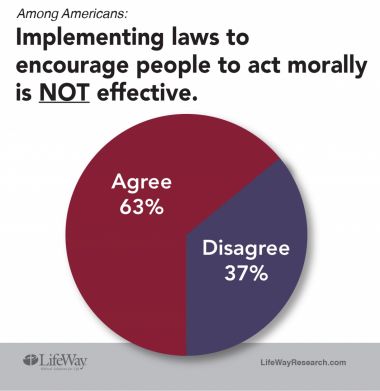Amoral America? Many in US fear its moral decline - but say right and wrong are relative

Does America care about moral decline?
Recent surveys suggest that most Americans are concerned about moral decline in the country. However, many – particularly in younger generations – do not consider morality to be unchanging.
A study by Lifeway, published this month, found that more than eight in ten of 1000 Americans polled agree with the statement, 'I am concerned about declining moral behavior in our nation' while nearly two in ten disagreed.
More than six in ten of those aged 45 or older said that right and wrong were unchanging. In the demographic aged 35 and under, fewer than four in ten agreed.
LifeWay's executive director Scott McConnell said of the stats: 'We are shifting very fast from a world where right and wrong didn't change to a world where right and wrong are relative. We are not all on the same page when it comes to morality. And we haven't reckoned with what that means.'
Americans, across age, social and ethnic demographics, tended to affirm concern about moral decline. More than eight in ten per of those aged 65 and older were concerned about declining moral behavior, as were more than seven in ten of those aged 18-24.
There is dispute when it comes to legislating morality. Most Americans – more than six in ten – said that 'Implementing laws to encourage people to act morally is not effective'.

Under half agreed that 'the fewer laws regulating moral standards, the better'.
More than five in ten Americans think too many laws regulating morality have been removed.
Christians, particularly evangelicals, were more likely to agree: 72 per cent of evangelicals and 55 per cent of Christians shared concern about lack of moral legislation. Less than half (46 per cent) of non-evangelicals agreed, and only 36 per cent of those belonging to other faiths.
Quizzed on perosnally discerning right and wrong, half of Americans said that right and wrong do not change. About a third said whether people were hurt or not impacts whether something is right or wrong.

Personal conscience is more influential than legislation or the threat of punishment: only 4 per cent of Americans worry about getting caught when choosing between right and wrong.
Half of Americans listed religion as an influential factor in decision making. When it came to naming the most influential factor, parents were the broadly the most significant, followed by religious beliefs and feelings. For evangelicals however, 64 per cent said their faith was the driving influence, as did just over half of those who attend religious services more than once a month.
'For those with evangelical beliefs, the Bible is the ultimate authority,' McConnell said. 'It trumps everything. So it's going to be the source for how they determine right from wrong.
'However, for Americans there is no most influential source of morality embraced by a majority.'
The full LifeWay study can be read here.











